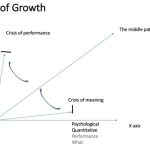
Coaching in the 21st century has become a fundamental part of companies and businesses to enhance the potential of their people and mission. Research finds that employees prioritize their growth as a critical factor in their commitment and tenure at the workplace. In addition, the rapid growth of the personal and professional development movement is continuing to advance. More and more people are looking to coaching as the medium to accelerate their growth.
“Each person holds so much power within themselves that needs to be let out. Sometimes they just need a little nudge, a little direction, a little support, a little coaching, and the greatest things can happen.” — Pete Carroll
The International Coaching Federation defines coaching as ‘Partnering with clients in a thought-provoking and creative process that inspires them to maximize their personal and professional potential.
When coaching cultures are grown within an organization, they can find new optimism, mission, collaboration, and engagement levels. Coaching creates an environment where people know how to listen, speak with clarity and ease, self-regulate emotions, empathize, and tap into deeper motivations that drive their efforts.
Trained strategic thought partners (coaches) have the counterintuitive abilities to help people explore both purpose and performance and help turn that exploration into reality.
In parallel to the growing demand, some professionals, leaders, coaches, and individuals seek flexible working opportunities to balance their lifestyles. Achieving an approved accreditation can create possibilities for working as a professional coach and successfully developing other people in an enriching role.
2b Limitless are the builders and deliverers of the APC course. 2b Limitless is a multi-award-winning professional coaching and training institution focused on Strengths, Engagement, Performance, and Transformation. The APC course designed by 2b Limitless is accredited by The Association of Coaching, The International Coaching Federation, and The CPD Standards Office in the United Kingdom.
The APC course is an interactive programme designed to provide coaches, professionals, individuals, and leaders with the tools, skills, and knowledge to unlock human potential to its greatest extent.
The course has a blend of theory, coaching exercises, critical thinking discussions, reflections, interactive projects, self-study, and the completion of written learning notes. Successful candidates will learn crucial psychological theories of motivation and decision making and the applied coaching competencies that can unleash the best version of others and help them discover both purpose and performance.
Book the next APC workshops in October and November 2021 or January/February 2022, so you can get accredited and be a certified coach before you start to set up your own coaching business in the UAE.
5 types of coaching in the workplace that gets results
1. Business Coaching
Business coaching is about assisting employees to become more productive — and encouraging and including your employees in the process. Coaching impacts employee’s adaptability, engagement, and retention.
The demand for business coaches continues to grow in the companies as they improve the quality of decisions and value creation. Business coaches have the abilities to open up space, challenge where required, help create new awareness, design new actions and build a plan of performance, success and value creation for their clients.
Business coaches are the strategic thought partners who help in unlocking the potential of the business owners. They work to improve their talents, set strategic goals, develop decision-making muscles, and help them build a personalized outline for success.
Business coaches study everything about the brand and the company, from its value propositions to its potential customers and the difficulties it faces and beyond. Once the business coach has analyzed everything about the company and its systems, they develop a strategy that serves the clients goals and needs. Coaches can build a lucrative career in the business coaching niche as it is growing in demand.
A business coach helps in planning strength-based, clear and on-purpose goals for the company. They set a clear roadmap to achieve the planned goals. They enhance the company’s performance and improve the business owner’s skills in decision-making. They act as a true asset for the company.

2. Leadership Coaching
Leadership coaching includes encouraging team leaders to define and describe the company’s aims to all employees and ensuring that everyone is working toward fulfilling the organization’s objectives.
70% of the engagement of a team hinges on the experience of their leaders. The goal of leadership coaching is to help the leader develop the confidence, mindset, skills and competencies to maximise the potential of themselves and their people. Leadership is often defined as: Achieving goals through people. When technicians are promoted to leadership, they are no longer trading in IQ – they are trading in EQ. Their ability to inspire others is very important.
Leadership coaches work personally with their clients either in a one-on-one connection or with a team of leaders and employees to help them become more effective in their role as a decision maker, strategist, influencer and tactical relationship builder.
Coaches analyze and observe the culture and goal of the company. They facilitate meetings and explore with employees and leaders alike. Coaches may provide their clients with assessments, tools, frameworks and feedback to grow self awareness and performance. After gathering all the information, the coach helps the leaders develop their own strategy that will help the company achieve its goals. Also, the coach works throughout the strategy to guide.
3. Executive Coaching
Executive coaching proceeds to gain traction in the corporate field, as organizations of all types and sizes experience its value and reap the perks. The role of executive coaching is now known as a requirement for guiding skilled, high-potential employees to achieve outstanding performance.
Organizational effectiveness, profitability, productivity, and innovation–these assets all rely on having strong, capable, and experienced leaders in place, which is why executive coaches are in massive demand at many top companies globally. They are among the highest-paid coaches in the business niche.
As an executive coach, you have the opportunity to work with company leaders on strengthening the skills and perspectives to enhance their team management efforts, develop a better work-life balance, and build high performance behaviours that drive real value.
An executive coach supports the company to achieve their business mission in order to make their organization successful. They involve the right people, including employees, owners, investors, and stakeholders, at the right place. They understand and observe the company culture and facilitate the integration of talent and mission to drive success.
4. Career Coaching
Career coaching aims to help professionals, individuals, and leaders make informed decisions about their trajectory. It’s a solution-based strategy for career decisions. Career coaches focus on growth, performances, and accountability.
A career coach might introduce methodologies and mindsets to support professionals, in finding their sweet spot so they can position themselves in a way that will maximise their potential and help them derive and contribute maximum value.
A career coach helps their client assess the current career situation, identify strengths and weaknesses, differentiate factors, identify potential skills gaps, and recommend actions to fill them.
A career coach helps people understand what is meaningful for them. What is their purpose, what is the goal behind the goal and what are their values that decisions are based around.
Career coaching can be an asset for future coaches, individuals, and professionals, as with the career coaching program, they can:
- Find the sweet spot
- Gain career confidence and motivation
- Be able to pitch in a compelling manner
- Know the next future career step and how to work towards it
- Be able to highlight the strengths and minimize the weaknesses
- Derive a sense of Purpose and build toward it.

5. Strengths Based-Performance Coaching
Strengths-based performance coaching is now one of the most used coaching methodologies in business today. This reflects a growing recognition of how strengths-based performance coaching majorly contributes to strong coaching outcomes, including higher positivity, engagement, and sustained peak performance.
The strengths-based performance methodology studies both strengths and weaknesses. It focuses on strengths as the most productive possibility for strategic deployment and growth and weaknesses as areas to be eliminated and managed around.
An experienced strengths-based coach helps choose the most relevant strengths for the situation and helps develop the weaker areas by applying the potential strengths to them.
Coaches who use a strengths-focused performance approach with their clients explore what most energizes their clients – and so are already focusing on areas that the client is expected to be great at – or are more capable of becoming great at.
The 2b Limitless approach towards coaching is Strength-based Performance Coaching – this is a methodology that focuses on investigating what is right about people. It is probably the best type of coaching in the workplace that gets results.
It is derived from research in Positive Psychology. This research finds that when people learn to understand and deploy their strengths, they are more likely to have increased professional and personal commitment, more likely to be happier, and more likely to increase their engagement and performance.
Investment returns are exponential when people develop their strengths; they grow faster and find more profound engagement, happiness, and performance levels. When weaknesses are the main focus area for development, they miss out on the most lucrative opportunity to find deep engagement and high performance.
Leaders, organizations, and coaches are only gradually embracing the strengths-based approach. Coach training programs accredited by the International Coaching Federation and Association for Coaching underpinned by the strengths-based approach bring a real advantage to leaders and coaches looking to unleash the potential of individuals, teams, and organizations.
POPULAR NEWS
-
Balancing Work and Life: Strategies for Leaders to Prioritize Well-being

-
Fostering Psychological Safety

-
Unlocking Potential: Building a Strengths-Based Working Culture in Your Organization

-
Navigating Tomorrow's Leadership: Unveiling Future Trends and Insights

-
Embracing Diversity and Inclusion: Fostering a Culture of Belonging in the Workplace


